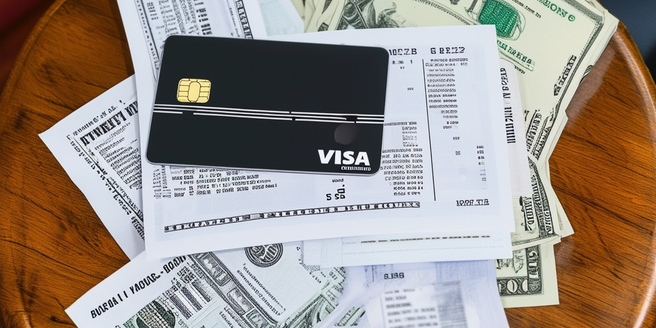
Understanding the Basics: Credit and Rewards
Credit and rewards programs offer incentives like points or cash back for every dollar you spend, encouraging more spending by offering benefits. With credit card usage, you borrow money to make purchases, promising to repay the spent amount later. This system allows access to funds you might not currently have, with repayment due within a certain period. The most appealing aspect is the reward system tied to spending: the more you spend, the more rewards you earn. These rewards could range from travel mileage and gift cards to cash back, letting you put them towards a variety of purchases or even your credit card bill itself. These programs not only make buying what you need or want more exciting but also yield rewards from regular expenditure, transforming shopping into an experience associated more with earning than depleting funds.
Finding the Right Card: Making the Most of Your Income
Income level plays a critical role in accessing certain types of credit card rewards, with more upscale cards often targeting high-income earners but also demanding strict spending requirements. Therefore, your income and its compatibility with such spending conditions is key when choosing a rewarding card. It’s suggested that you select a card that aligns with your regular spending habits, to benefit from maximizing rewards. Credit cards for wealthier clients can entail sizable rewards linked to high expenditure; hence, knowing your spending patterns can allow you to comfortably meet these without budget strain. Hence, your income circumstances must align with your choice of credit card to effectively maximize rewards. Finally, comparing your income level with spending requirements and matching the card’s rewards with your spending habits is essential for maximizing your credit card rewards.
Effective Strategies: Budgeting with Your Credit Card
Treating your credit card like a debit card is a great strategy for budgeting and earning rewards. Just as with a debit card, the aim is to spend only what you have, ensuring you don’t exceed your income. It is also crucial to pay off your balance in full every month to avoid accruing unnecessary debt and maintain the health of your credit score. Using your credit card wisely can lead to maximizing rewards earnings, providing additional financial benefits. This method not only aids in effective budgeting but also offers the potential of rewards earnings. By spending within your means and paying off your balance each month, you can avoid debt while maximizing your credit card rewards. This practical approach to credit card usage allows you to manage your finances better while also enjoying the benefits of reward points.
Maximizing Rewards on Everyday Expenses
Maximizing credit card rewards often hinges on using the card for regular expenses like groceries, fuel, and utilities, not just big-ticket items or occasional shopping. Groceries are a significant part of individuals’ monthly outlays—a key area for earning maximum rewards. Using your credit card for fuel helps manage its increasing costs and garners valuable points or cashback. Paying utilities with your credit card can similarly boost your rewards. Other routine expenses like dining out or entertainment paid with a credit card also aid in maximizing rewards. Using a credit card for everyday purchases is a savvy financial practice, offering an opportunity to earn more cash back or points without incurring extra expenses.
Balancing Debt: Paying Off Your Credit Card Responsibly
Paying off your credit card balance in full every month is key to preventing you from falling into debt traps and can greatly boost your financial health. This habit significantly influences your credit score, which is used by lenders to measure your creditworthiness and can affect loan approvals, housing affairs, and job opportunities. Furthermore, another overlooked benefit is the potential to earn rewards such as cashbacks, travel points, and exclusive deals. A timely full payment allows you to leverage your credit card’s reward program, free from the burden of interest expenses. Hence, while a credit card offers convenience and a way to build credit, it’s crucial to pay your balance each month, ensuring you stay out of debt, enhance your credit score, and maximize your card’s reward program, all without the stress of extra interest charges.
Success Stories: Real cases of Low-income Individuals Maximizing Rewards
Credit card rewards are usually viewed as perks for the affluent, but various success stories prove otherwise, with individuals from low-income backgrounds exploiting these rewards for financial benefits. Through financial discipline, detailed budgeting, and strategic planning, they have discovered methods to optimize credit card rewards. Their strategy revolves around the selection of credit cards, which offer different rewards, and aligning this with their spending habits, hence maximizing potential rewards.
These accounts show that credit card rewards can amount to significant financial assistance, being used for vacations, or building an emergency fund or retirement savings. In short, by intelligent budgeting, strategic card selection, and sensible spending habits, rewards can significantly improve financial conditions, dispelling the myth that only the wealthy can benefit from credit cards.
